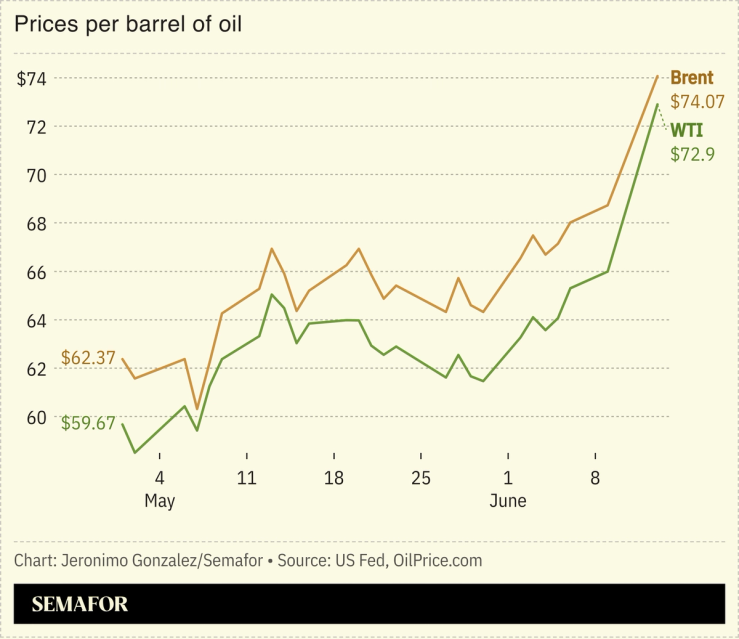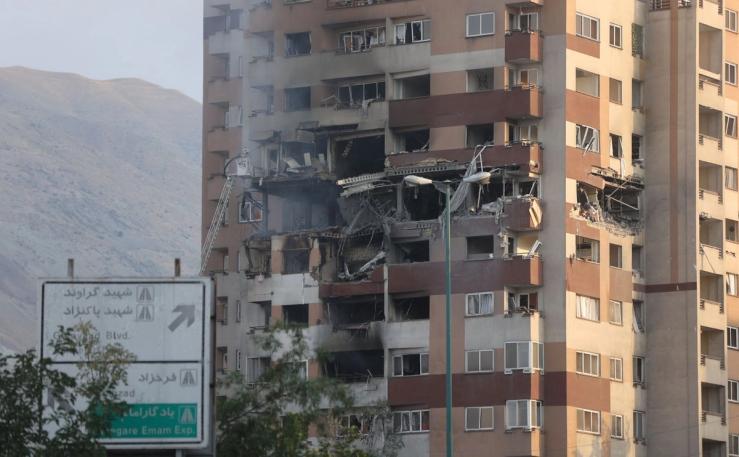The News
Israel decapitated Iran’s military leadership, launching air strikes on nuclear facilities and ballistic missile bases intended to end Tehran’s atomic weapons program.
Gulf countries condemned the attack: Saudi Arabia’s foreign minister held calls with counterparts in Iran, Jordan, and Egypt to avoid a wider flare-up, while the UAE urged “the utmost self-restraint” and called on the UN Security Council to take measures to “achieve a ceasefire.” Oil at one point spiked more than 10%.
The region was bracing for action as the 60-day deadline that US President Donald Trump placed on nuclear talks with Iran passed on Thursday. Trump told Fox News he hoped talks would resume but notably, the Israeli strikes were carried out absent American support.
While the official Gulf response was to de-escalate, many people in the region rejoiced given Iran’s role in propping up proxies that killed thousands and destabilized Iraq, Lebanon, Syria, and Yemen. A prominent Emirati analyst posted: “Best Friday and Shabbat ever. This feels like an early Christmas.” Memes of celebration, handing out sweets, and taunts from a Shiite cleric who had forewarned last year that the strike was coming spread on Arabic social media.
In this article:
Know More
Following the Israel attacks, Gulf airlines were among several global carriers to cancel dozens of flights following the closure of airspace over Jordan, Iran, Iraq, Israel, and Syria. Flights to those countries were halted, causing delays and forcing rerouting. Jordan’s military said it intercepted drones and missiles in its airspace after Iran vowed to respond to Israel’s strikes.
Aviation is a major contributor to the economies of Abu Dhabi, Doha, and Dubai. While direct travel to the affected countries isn’t critical for Gulf carriers, air corridors over Iran, Iraq, and Syria are important to keeping flight times and costs down for routes connecting Asia to Europe and the US.
The View From Analysts
Questions over shipping lanes, expanding the Abraham Accords, and nuclear proliferation are set to dominate conversations in the Gulf in the days ahead.

Brent crude remains “well short of crisis levels,” Shalom Lipner, a nonresident senior fellow at the Atlantic Council pointed out, but analysts say it will spike if shipments are disrupted. Meanwhile, Saudi Arabia could be drifting further away from normalizing ties with Israel as the war in Gaza grinds on and a regional conflagration looms. Bloomberg’s Mark Champion argues that while the strikes could delay Iran’s nuclear program by a few years, Tehran will now push to build a “nuclear arsenal as fast as it can.”
Notable
- Iran announced plans to build a new nuclear enrichment facility just hours before the Israeli attack.


